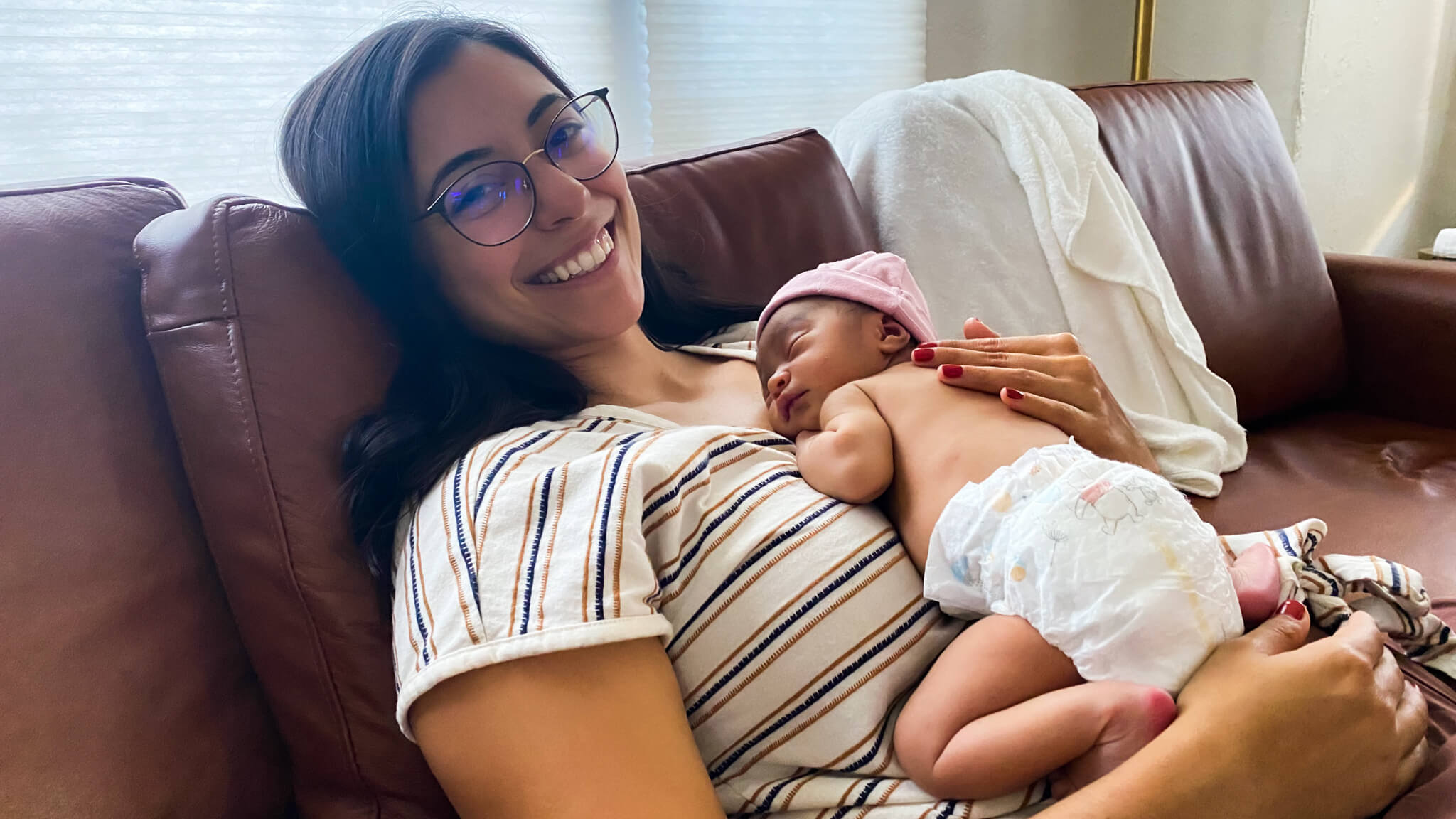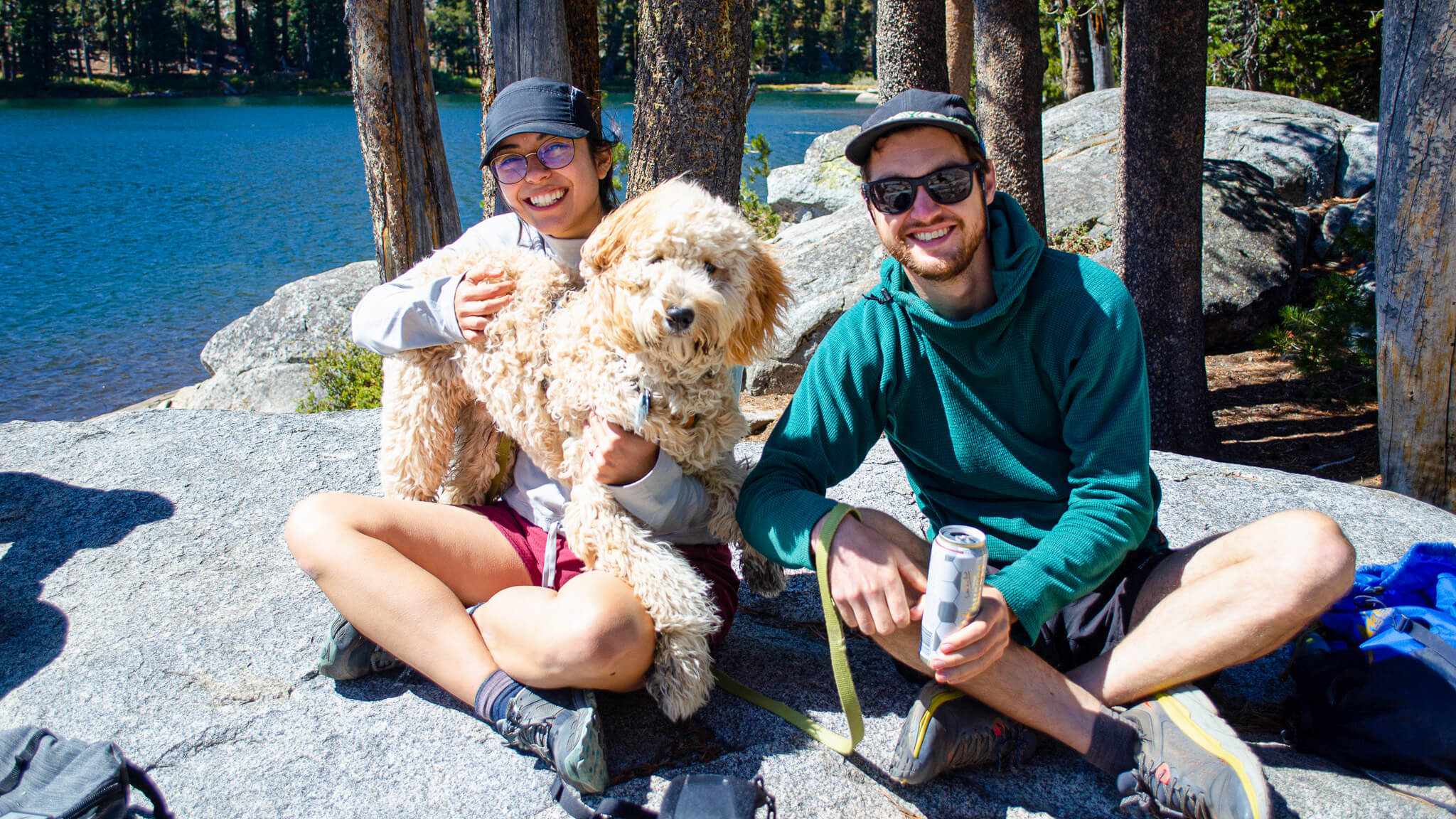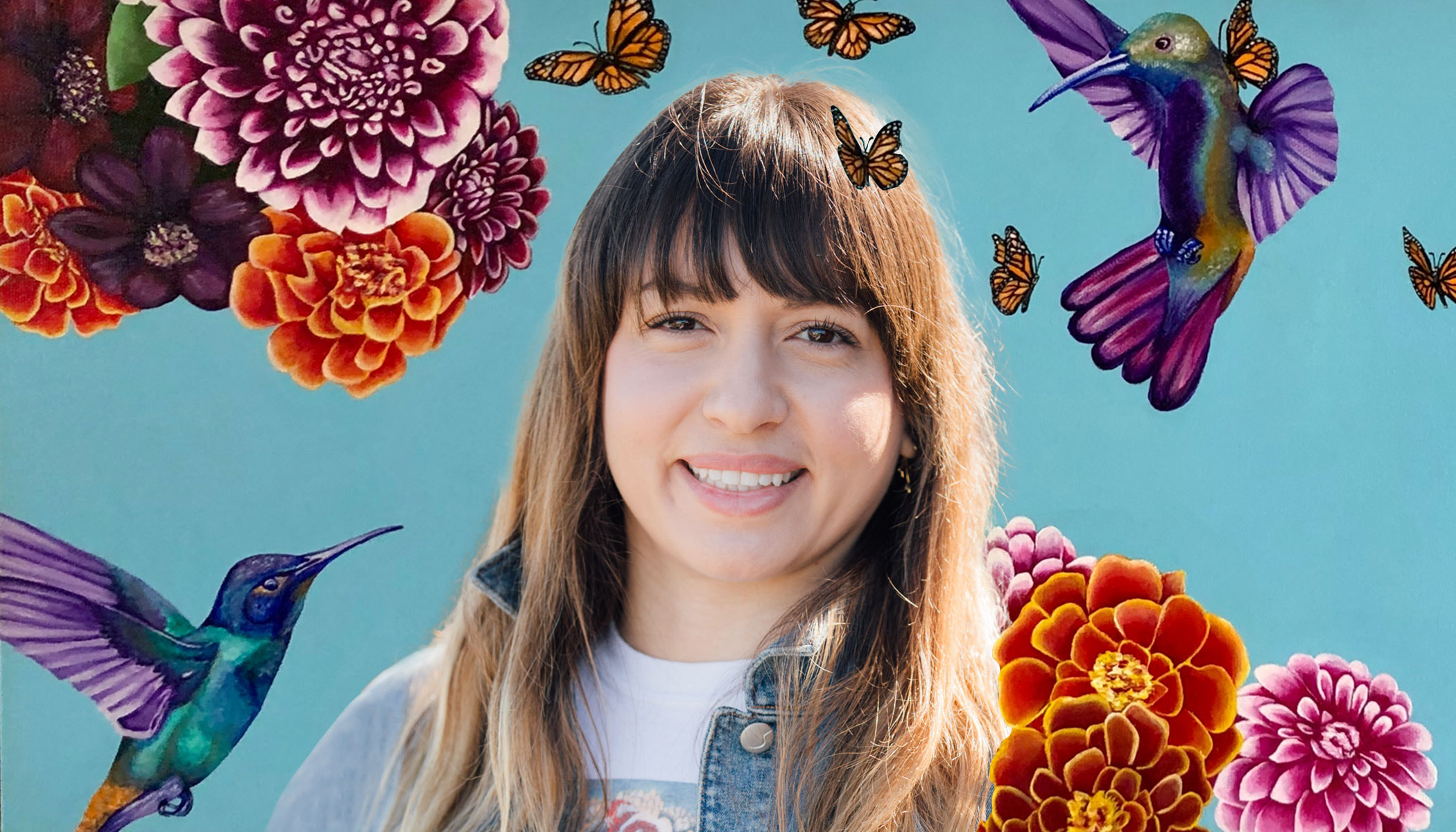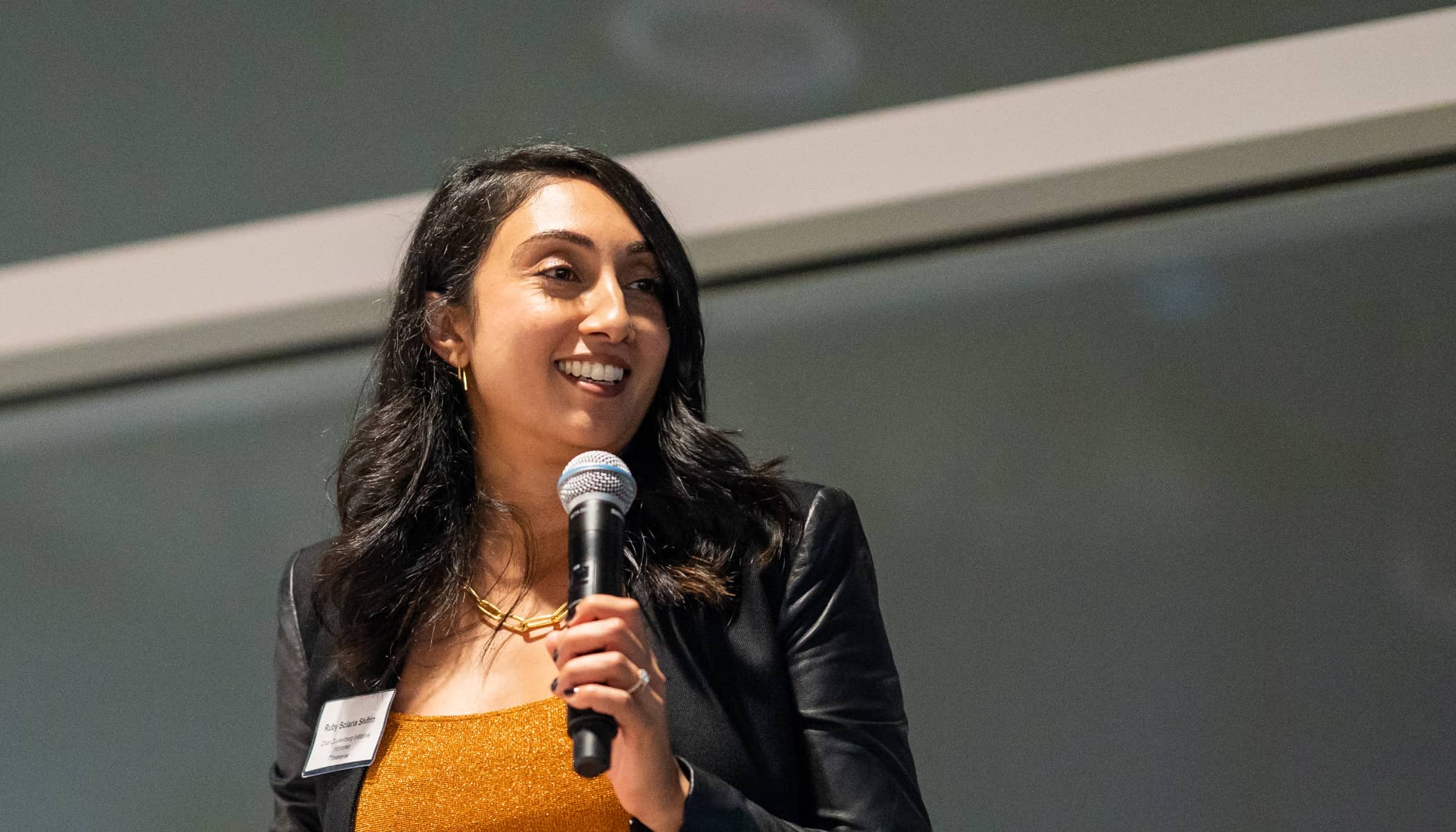Mar 18, 2022 · 7 min read
How a CZI Community Manager Is Working To Build a More Inclusive, Equitable Bay Area
Elisa Espinoza, a manager for CZI’s community team, is committed to improving the place she calls home so that residents can live comfortably in the Bay Area of California and enjoy all the region has to offer.

The people closest to our society’s most pressing issues should be the ones to inform solutions and drive change. So when we say to “stay close to the work” at the Chan Zuckerberg Initiative, we mean it. Our teams partner with diverse educators, families, community leaders and organizations, scientists and more to make sure the voices of those most impacted are always heard.
In our next edition of Stay Close to the Work, we meet Elisa Espinoza, a manager for CZI’s community team whose personal story reflects the experiences of communities she’s committed to supporting. Learn about her and her team’s efforts to make the Bay Area a place where people can not only live — but thrive.
We’re all aware that we’re in an incredibly privileged position to shepherd resources, and our team takes that responsibility seriously. We genuinely care about doing well by the community.
Tell Us About What You Do at CZI.
I am a bit of a generalist on the community team. Overall, I focus on supporting and strengthening our programmatic work, which is anchored on the vision of building a more inclusive and equitable Bay Area. I manage a portion of our local grant-making dollars, our disaster relief work, and support strategic planning around new work areas. My day-to-day role includes meeting with partners, reading grant proposals, writing grant recommendations, and staying up to date on research and trends within our focus areas.
How Did You Come To Be a Part of the CZI Team? Tell Us About Your Journey.
When I was in college, I knew I wanted to work in service to the community. I majored in political economy at UC Berkeley — studying the relationship between government, society and the economy — to understand what contributes to inequality and find solutions to these systems failures.
My first job out of college was as a grant writer for a nonprofit addressing homelessness in San Mateo and Santa Clara County, California. I began to learn more about philanthropy — something I only vaguely learned about and understood in college. I also realized that the vast majority of the foundation program officers I interacted with did not look like me and yet, were making decisions impacting communities of color and those affected by systemic inequities. I realized that my voice could be important in this space, and I began to think about the impact I could support by transitioning to the philanthropic sector. I could keep supporting the work of nonprofits, but also convene stakeholders and build grant portfolios in a way that contributed to robust systems change. I got my first philanthropy job at Silicon Valley Community Foundation and have been deepening my work in philanthropy ever since.

Tell Us More About How Your Work at CZI Relates to Who You Are and Your Values.
My story is emblematic of many challenges the community team is trying to tackle. I am from the Bay Area — born in San Francisco and raised in Oakland until I was 10. I have great memories of growing up in Oakland. I played with the kids across the street, learned how to ride my bike at a nearby park, enjoyed trips to the local public library and regular visits with my grandma, aunts, uncles and cousins.
But the cost of living in the Bay Area — housing, transportation and childcare — became unaffordable. My parents made the difficult decision to move our family to the Central Valley to ease our family’s financial strain. We moved away from our community of friends and family, and my dad commuted to San Francisco for more than a year until he found a job in Sacramento.
We were lucky because we could leave on our own terms. But, when I think about all the sacrifices my parents made to prioritize my future, I realize my family’s experience was not unique. Many families are forced to make difficult choices that uproot their lives because a future in the Bay Area is out of reach. That’s why the work of the community team and its partners is so crucial. This is a beautiful and vibrant area — but it’s becoming increasingly inaccessible. I want to help ensure people (like my family) can afford to live and thrive here and share in the region’s abundance.
Read more: This California Nonprofit is Fighting for Equity in North Fair Oaks
Balancing the Demands of Work and Life Can Be Challenging. What Are Some of Your Favorite Ways to Prioritize Self-Care?
This year has been challenging, so self-care has been a priority. My fiancé and I got a puppy in March 2021 and now our lives revolve around him. Nothing lifts the spirit like cuddles from your dog. Besides that, I love reading, traveling, hiking, and visiting with family and friends.

What Do You Enjoy Most About Your Team?
I am surrounded by a brilliant, talented and thoughtful group of people. What’s most striking is that we’re all aware that we’re in an incredibly privileged position to shepherd resources, and our team takes that responsibility seriously. We genuinely care about doing well by the community. With this shared motivation, we make space to ask questions, share feedback and challenge ideas. This has helped me grow both as an individual and in my career. And my team is down-right fun! We strike a great balance of taking the job seriously, but ourselves lightly.
What’s a Community Project You Really Enjoyed and Why?
Last year, I partnered with my colleagues, Curtis Yancy and Rosa Cabrera, to pilot a participatory grant-making review panel. We recruited external community members and CZIers to help guide our Community Fund grant selection process. The experience was terrific. We brought this group together in a series of six learning sessions to ground ourselves in the community’s context, experience, and stories.
Running this pilot reminded me of how our work should be done. Philanthropy can have an ivory tower reputation — academic, data-driven, and largely removed from the societal challenges it hopes to impact. But, what was beautiful about this pilot was that the community members were our experts and were able to define what success looked like for their community. This pilot reminded me that philanthropy, at its best, should be centered on the voices and lived experiences of the communities it serves.
Read more: The Powerful Experience of 2 Community Fund Review Panelists
How Do You Hope to See the Community Team Grow Over the Next Five Years?

I would like to expand the scope of our work, deepen community partnerships, and explore embedding participatory grantmaking approaches into our work. I would also love to see our team strengthen our evaluation and learning practices to help us be more effective grant-makers. I think thoughtful evaluation, done in true partnership with the community, can hold the philanthropic field more accountable and be used to support the capacity and growth of nonprofits.
Transformative change should be measured in decades rather than years. I do hope, however, that five years from now, we can measure our team’s success not only by impact metrics but also by HOW we approached the work. Our approach is to build strong and effective partnerships where we center equity and inclusion, community expertise, and engage with trust and transparency. We must lead with our values first and trust that change will follow.
Want to help us build a more inclusive, just and healthy future for everyone? Explore CZI career opportunities now. And for more Stay Close to the Work content, visit the series page.





